By Trevor W. Santos
Since 1937, America’s firearm industry has made conservation efforts possible around this great nation. Through the NSSF and the U.S. Fish and Wildlife Service’s (USFWS) Partner with a Payer program, I had the opportunity to witness some of those on-the-ground conservation efforts at work.
The goal of the Partner with a Payer initiative is to strengthen collaborations between the people who make this very successful conservation partnership work so well – manufacturers that pay excise taxes through the Wildlife and Sport Fish Restoration Acts, and state agencies that conserve wildlife and habitat and the Wildlife and Sport Fish Restoration program of the USFWS.
This Partner with a Payer event took me to Garrett County in western Maryland, where we gathered with a team from Maryland’s Department of Natural Resources (DNR), several members from USFWS, and Maryland-based Benelli USA. As part of the day’s outing, we took part in a bear den study, and had the opportunity to see how some of these firearm industry tax dollars were being used. Two veterinarians from the Maryland Zoo were also on hand to ensure the health of the sow and cubs.
Once included on a list of “endangered species,” Maryland’s black bears have seen a remarkable rebound, in part, thanks to the firearm industry’s contributions. According to Maryland DNR, there are approximately 2,500 black bears that are located primarily in four western Maryland counties including Garrett, Allegany, Washington and Fredrick; however, sightings of bears in other parts of the state are not uncommon.
Industry-Supported Tax
The Federal Aid in Wildlife and Restoration Act, often referred to as the Pittman-Robertson Act, was supported by the firearm industry and approved by Congress in 1937. The Pittman-Robertson Act levied a federal tax on firearms, ammunition and archery equipment at a rate of 10 percent for handguns and 11 percent for long guns, ammunition, and archery equipment. The funds are collected from the manufacturer quarterly and distributed to the states on an annual basis.
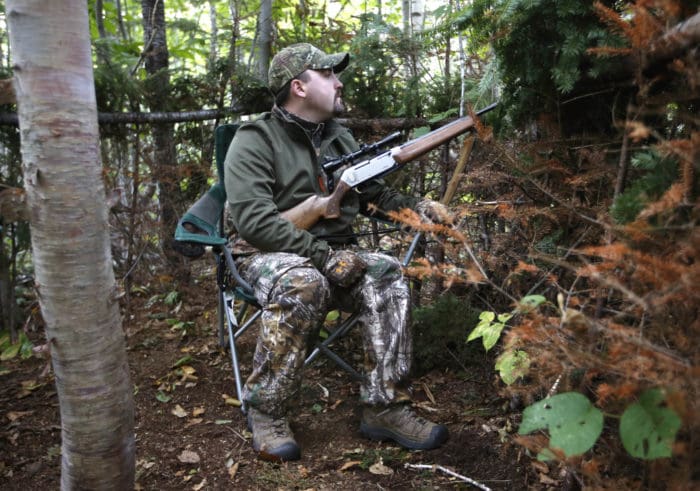
The funds benefit both hunters and non-hunters alike, supporting wildlife conservation projects, management of public hunting lands and wetlands, as well as game and non-game species. Since the inception of the Pittman-Robertson Act, firearm and ammunition manufacturers have contributed more than $14.7 billion to the Wildlife Restoration Trust Fund. In 2021 alone, the firearm and ammunition industry brought in more than $1.1 billion for conservation.
Your Tax Dollars at Work
The firearm industry contributions made it possible for me to witness wildlife biologists at work. From the dart gun and sedatives used to sedate the bear, to the radio collar, tracking chips and telemetry gear used to locate the bears, the funds generated by the firearm and ammunition industry continue to pay for research and management of Maryland’s strong and growing bear population.
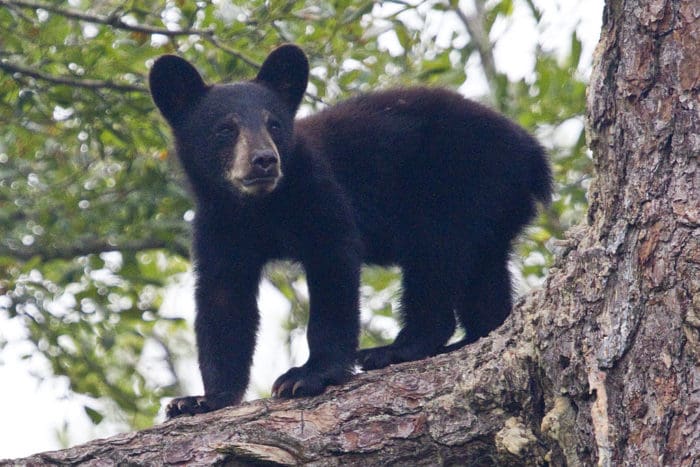
A Maryland DNR biologist sedated the bear, and then the rest of the team jumped into action, pulling four healthy six-week-old cubs, two males and two females, from the den. From there, biological samples were taken from the sow, including hair and blood samples, and a new radio collar was applied.
The cubs were thoroughly checked out as well, being weighed, ear-tagged, and microchipped. Those cubs will stay with their mother for another two years before she mates once again, dens up for winter and gives birth to another litter of cubs.
Opportunity of a Lifetime
Holding a bear cub, close to the chest inside my jacket, was certainly an opportunity of a lifetime that most will never experience. My NSSF colleagues and I will be forever grateful for this opportunity. But more importantly, the representatives from Benelli USA had the opportunity to see where and how their excise tax dollars are being utilized. The firearm industry paying into this fund allows for healthy wildlife and wildlife habitat, among other things.
We should be proud as an industry, proud as gun owners, and proud as hunters to see the positive impact we’re having on wild things and wild places. It is because of us, along with the North American Model of Wildlife Conservation, that species such as the white-tailed deer, the Rocky Mountain elk, ducks and turkeys roam the landscapes, and will be there, God-willing, for future generations.
Trevor W. Santos is Director of Government Relations – State Affairs for the National Shooting Sports Foundation.

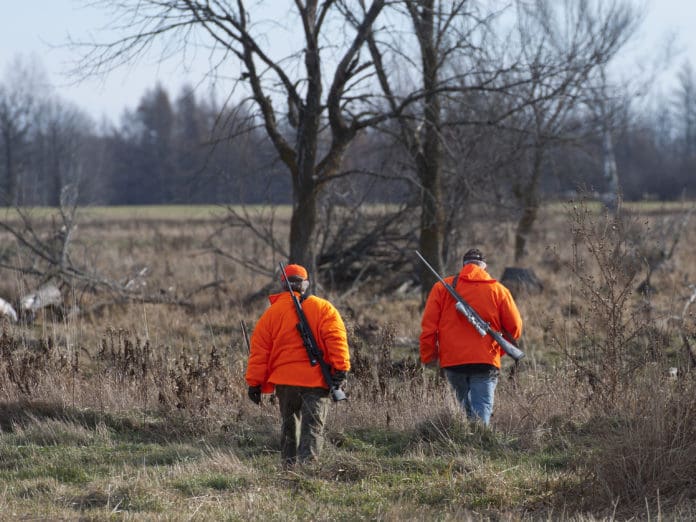

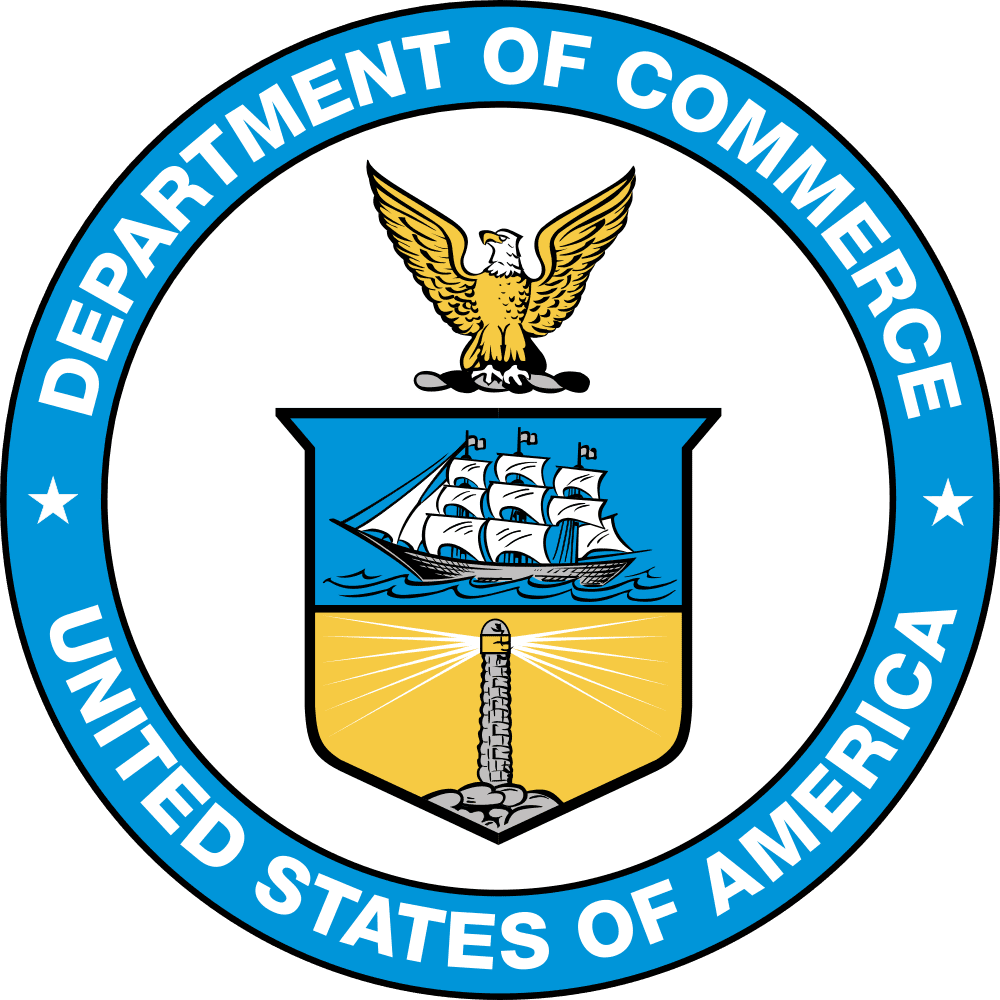
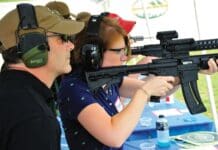
The reason the firearms industry supported Pittman-Robertson is that it didn’t levy a new tax, it took the funds from a preexisting tax from the general treasury and gave it to Department of the Interior to be distributed among the states for use in conservation.
Gov. I did not know that. Thank you. I’ll read up on that.
Yeah, I knew I had read that before. I checked on the Wikipedia page on the act and it confirmed that but it didn’t mention the origins of the existing tax. Didn’t have time to research any further. I’m thinking it was Woodrow Wilson’s doing. Either way, I’m pretty sure the firearms manufacturers weren’t too crazy about it when the tax was first imposed.
If the price of meat keeps rising there may be more hunters to compete with next season…If you hunt it is wise to keep your Game Warden happy.
The national tax on firearms and ammunition as far as I know has not been raised. And it wasn’t that long ago when a 50-round box of 22LR cost $1.40. And sometimes less than that.
It seems to be a very small price to pay in order to keep the animal population, in this country under control. Of course we could allow folks to hunt any animal they wish into Extinction. But I don’t think that’s a good idea for the Ecology of this country.
The Communist Chinese ended up learning the hard way. That it’s not a good idea to hunt an animal species into Extinction.
now i gotta look that up.
The chinese communist were convinced that a small bird, sparrow or starling some such, were eating too much of the farmers grains. They declared a war and got all their ‘citizens’ to harass and exterminate the bird.
Which led to famine and millions of ‘citizens’ starving to death. Turns out the birds were keeping the locusts in check. Unchecked locusts ate whole crops.
When stupid people screw with God’s designs. Just like climate change.
Here you go sir.
From Reason TV Feb 2021. And yes I do like Reason TV. But what happened to the rest of Libertarism???
Great Moments in Unintended Consequences (Vol. 2)
“The Sparrow War” A capitalist sneak attack against the Communist Revolution??? What???
time stamp start @ 40 seconds. total video time 2 minutes.
“The Federal Aid in Wildlife and Restoration Act, often referred to as the Full Employment for Wildlife Biologists and Other People With No Employable Skills Act.”
FIFY
Ralph, as someone who’s always respected your opinions I’m disappointed in your last one. Anyone who’s read two of my comments knows I like to hunt and fish a little. I’ve had the opportunity to work with a couple of FL Fish and Game biologists. Once concerned a black bear. A few gators. Other “stuff.” They were all outstanding. I hate a tax, but Pittman-Robertson is one that is well spent. Even if you don’t hunt or fish. Please remember, if you spend time on state or federal lands, hunting, fishing, or not, and you have a firearm you are enjoying the fruits of the Pittman-Robertson Act. If you’re not enjoying those things I don’t know what to say. Already been to the farm today. Checked both ponds and Telogia Creek. It’s a beautiful day.
I get that, GF. But $14.7 Billion? Over a Billion dollars just last year? C’mon.
It’s pork. Just pork. A little bit get siphoned off for productive ends, while the rest is flushed down the toilet as only the feds can do.
I’m with you Ralph…wanna support wildlife? Do it on your own dime!
Ralph, it’s a big continent. It costs a lot of money to keep it up. That’s mostly paid the people that hunt and.fish. Mostly through taxes, license fees, and other people never see. Yeah, they pay their park admission. As far as those guys that don’t think they should pay? Give them a cut out. They’re money is inconsequential anyway.
Former I do pay for it with my own dime. A lot of them! Leave Pittman-Robertson out of it for now. Every year I buy a Sportsman Gold license. It covers everything in Florida except special hunts. It also includes a snook and crawfish permits. There isn’t a snook within 300 miles of me and I buy my mud bugs, but I pay and feel good about it. To that license I attach a federal duck stamp. Then there’s membership in Ducks Unlimited, National Wild Turkey Federation and Quail Unlimited. Former, I don’t own a lot of firearms, but I’ll guess I own a few above average. My job and hobbies kind of required it. They are probably equal parts firearms I hunt with and those I never will. Well, I guess I could hunt with an H&K 91, but why would I when I have two custom Winchester Model 70s in the same caliber? Point is I paid PR tax on the 91 too. One final thought, PR taxes are used to maintain public shooting ranges that are available free of charge. There is a large, nice range a short distance from me in the Apalachicola National Forrest. I, and friends, have used it many times. Built and maintained entirely by Pittman-Robertson funds. Never took a game animal on that range.
As noted in a past article (https://www.thetruthaboutguns.com/ga-rep-andrew-clyde-eliminate-all-firearm-taxes-eliminate-background-checks/). Andrew Clyde was credited as saying, “If you can tax a constitutional right, then it is truly not a constitutional right.”
A special tax on a constitutionally protected right is clearly unconstitutional. For instance, no pole taxes. Another good example was given by Mark P in the comments. The Supreme Court decided in Minneapolis Star Tribune Co. v. Commissioner that newspaper ink could not be taxed at a special rate because it stifled freedom of the press.
We should not be supporting this special tax. In theory the people would be able to increase their training as members of the unorganized militia by about 10%.
“ For instance, no pole taxes.”
What’s that? Something like a cover charge at strip joints?
Poll tax, perhaps?
As for not supporting P-R, which has been around since 1934- gun owners in general will have a hell of a time without the “support”, through basic firearms ownership, of those referred to openly around here as Fudds. If those millions just lose all interest it’ll create a huge void in the legislative and voting bloc.
I think he meant “Poll Tax”. It was a tax placed on individuals in order to vote in a National election. It was ruled Unconstitutional by the Supreme Court in 1915, but states were allowed to use a Grandfather Clause to continue it’s use on citizens already being taxed by it. Just No new citizens could be added to the lists. It was finally abolished in 1964 by way of the 26th Amendment.
PROTECT WILD LIFE BEST CAN IF WANT TO HUNT WILD LIFE .
BETTER THAN HUMANS HUNTING HUMANS ON THA STREET !
Modern windmills are bird killers!
My grandpa’s traditional Windmill didn’t kill any birds and gave electricity and water to the house.
Also had the advantage of lulling small children to sleep at nap time
Taxation is theft (and an infringement)
As a self defense Gun Culture 2.0 real 2nd Amendment anti Fudd instructor I say Pittman-Robertson (TAX) Act needs to go away as does the National Firearms Act of 1934.
This^^^^^
Well that had to be a ton of fun. Capturing a bear and holding the cub. I’m envious.
Touching a live bear is one on my bucket list.
Just about did it in a zoo but it snapped at my hand.
Their fast, it was close.
lol, I touched a live mountain lion once, back in Texas. Or it touched me. Was doing some volunteer work at a wildlife rescue place and one of my jobs was to feed the big cats. They had a small variety of big cats. I was putting food through the fencing when one charged up and grabbed it. Usually they would wait for you to move on before the approached the food on the ground. I felt the tooth touch my middle finger and my glove pull off. I jumped back fast. I was afraid to look at my hand, but he only got the glove.
That was more exhilarating than standing in the bobcat cage trying to lure escapees back in with a handful of raw meat.
I highly recommend volunteering at a wildlife rescue. You will have some amazing experiences.
Former I do pay for it with my own dime. A lot of them! Leave Pittman-Robertson out of it for now. Every year I buy a Sportsman Gold license. It covers everything in Florida except special hunts. It also includes a snook and crawfish permits. There isn’t a snook within 300 miles of me and I buy my mud bugs, but I pay and feel good about it. To that license I attach a federal duck stamp. Then there’s membership in Ducks Unlimited, National Wild Turkey Federation and Quail Unlimited. Former, I don’t own a lot of firearms, but I’ll guess I own a few above average. My job and hobbies kind of required it. They are probably equal parts firearms I hunt with and those I never will. Well, I guess I could hunt with an H&K 91, but why would I when I have two custom Winchester Model 70s in the same caliber? Point is I paid PR tax on the 91 too. One final thought, PR taxes are used to maintain public shooting ranges that are available free of charge. There is a large, nice range a short distance from me in the Apalachicola National Forrest. I, and friends, have used it many times. Built and maintained entirely by Pittman-Robertson funds. Never took a game animal on that range.
Comments are closed.